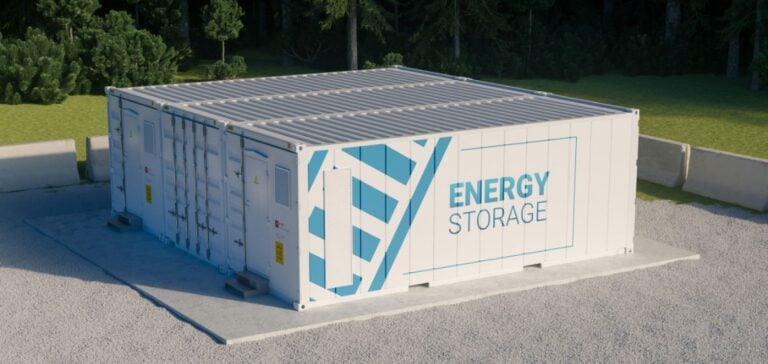Eolus, a developer of renewable energy projects, has signed an agreement to sell its Pome battery energy storage project located in Poway, California. The project, with a planned capacity of 100 MW/400 MWh, is under construction and is scheduled for commercial operation in the first half of 2025. The total value of the transaction is estimated between USD 230 million and USD 235.5 million.
A key project for the Californian energy market
The Pome project is supported by a ten-year tolling agreement with a Californian load-serving entity. This agreement will allow electricity to be stored and redistributed when needed, offering critical flexibility to stabilize the grid in a state heavily reliant on intermittent renewable energy sources.
Aligned with California’s ambitious energy goals, the project reflects the growing demand for storage solutions to support the transition to a low-carbon economy. The battery is currently being installed on-site, with the transaction expected to close in the first quarter of 2025, pending specific conditions.
An expanding sector in the United States
Since 2015, Eolus has been investing in renewable energy and storage projects across the U.S. The Pome project represents its fourth major sale in the country, emphasizing the attractiveness of the market and the rise of large-scale energy storage technologies.
According to industry analysts, California, with its ambitious carbon neutrality goals, remains one of the primary markets for energy storage solutions. Recent investments in infrastructures like Pome demonstrate the private sector’s interest in this strategic area.
Outlook for energy storage
The development of the Pome project is part of a global trend toward independent storage solutions. These infrastructures address the intermittency of renewable energy while meeting the flexibility needs of power grids.
The planned 400 MWh capacity for this project could serve as a model for other U.S. states facing similar challenges. The success of this transaction underscores the importance of partnerships between private investors and public entities in expanding energy infrastructure across the United States.





















